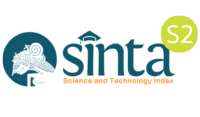SENI BERDOA MENGGUNAKAN AL-ISM AL-A'AZAM DALAM TEKS AL-JAWAHIR AL-KHAMSAH MILIK KESULTANAN BANTEN
THE ART OF PRAYING USING AL-ISM AL-A'AZAM IN AL-JAWAHIR AL-KHAMSAH TEXT BELONGING TOTHE SULTANATE OF BANTEN
DOI:
https://doi.org/10.31330/penamas.v28i2.90Keywords:
Al-Jawahir al-Khamsah, sufism, sufi order, Sultanate of Banten, PhilologyAbstract
This paper offers a discussion of al-Jawāhir al-Khamsah text written by Shaykh Muḥammad Khaṭīr al-Dīn al-Aṭṭār (w.970/1563), which its copy exist in the Sultanate of Banten era. This study uses philological and codicological sufism approaches. This study concluded that al-Jawāhir al-Khamsah text is the main text of teachings Shaṭṭāriyah, because it is popular not only in its place of origin, India but also in Nusantara. Its copy which is originated from Banten in the 18th century ensure that it was an actual text for community in responding to the challenges of the times, especially when the Sultanate of Banten entered a phase of deterioration under the pressure of Netherlands.
Keywords: al-Jawāhir al-Khamsah, Sufism, Sufi Order, Sultanate of Banten, Philology
Tulisan ini memfokuskan bahasan pada teks al-Jawāhir al-Khamsah karya Shaykh Muḥammad Khaṭīr al-Dīn al-Aṭṭār (w.970/1563), yang salinannya ada pada masa Kesultanan Banten. Penelitian ini menggunakan pendekatan tasawuf filologi dan kodikologi. Berdasarkan pemaparan di atas disimpulkan, bahwa teks al-Jawāhir al-Khamsah sebagai teks induk ajaran tarekat Shaṭṭāriyah terbukti populer tidak hanya di tempat asalnya, India, melainkan juga terkenal hingga ke Nusantara. Adanya salinan naskah yang berasal dari Banten pada abad ke-18, dipastikan teks ini juga begitu aktual bagi masyarakat dalam menjawab tantangan zamannya, terutama masa-masa Kesultanan Banten memasuki fase kemunduran di bawah tekanan Belanda.
Kata Kunci: al-Jawāhir al-Khamsah, tasawuf, tarekat, Kesultanan Banten, filologi








